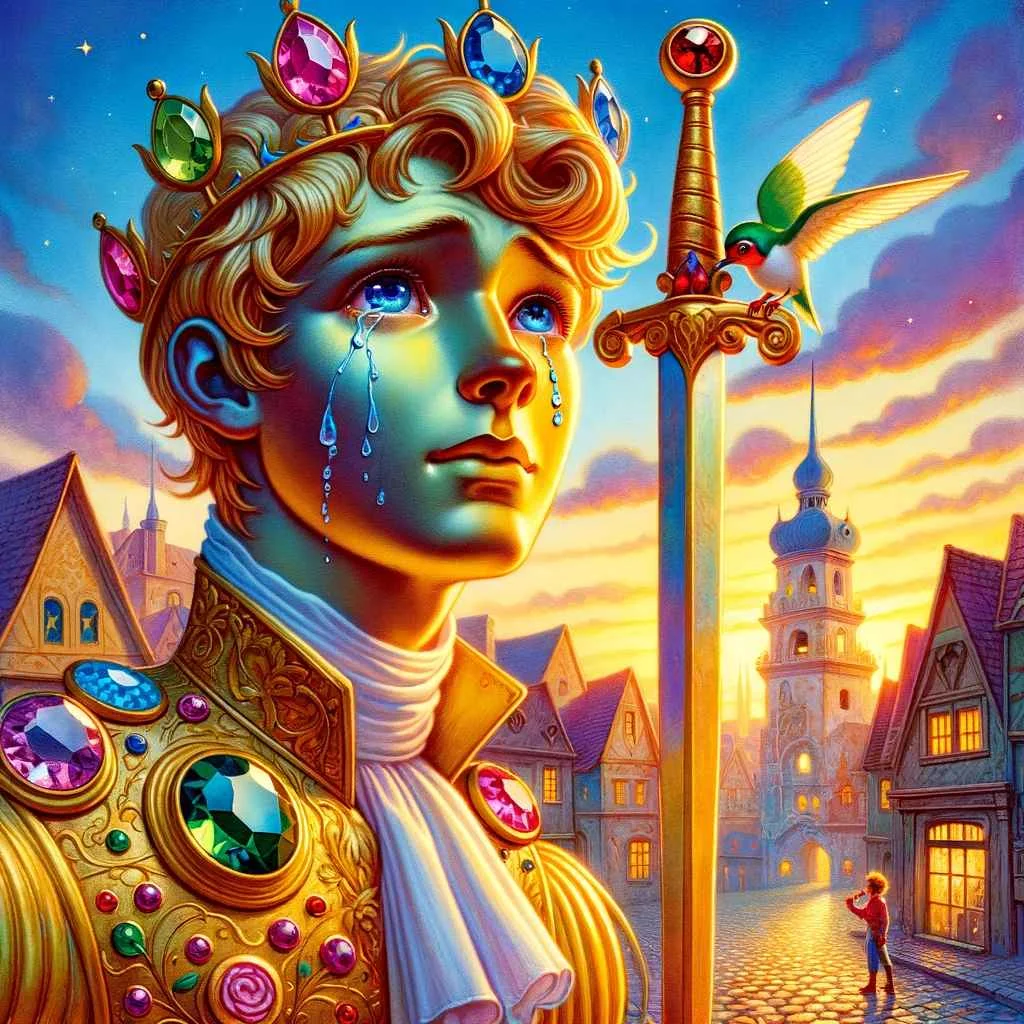Once upon a time, in a splendid city, there stood a magnificent statue of the Happy Prince. He was gilded with fine gold, had sapphires for eyes, and a ruby glowed on his sword hilt.
The Happy Prince had never known sorrow in his lifetime. But now, high above the city, he saw all the misery and ugliness of his city, and tears flowed from his sapphire eyes.
One night, a little Swallow flew over the city. He was en route to Egypt but decided to rest between the feet of the Happy Prince.
“Why are you crying?” chirped the Swallow, surprised to see a statue cry.
“I see the suffering of my people and cannot help but weep,” the Prince replied. “Will you be my messenger and take the ruby from my sword to a poor seamstress whose child is sick?”
Touched by the Prince’s kindness, the Swallow agreed. He took the ruby and dropped it into the seamstress’s lap.
The next night, the Prince asked the Swallow to take one of his sapphire eyes to a struggling playwright. The Swallow did as asked, though he grew sadder, knowing the Prince was going blind.
On the third night, the Prince requested his other eye be given to a match girl who had lost her matches and was afraid to go home empty-handed.
“But you will be blind,” protested the Swallow.
“Do as I ask,” implored the Prince.
So, the Swallow plucked out the Prince’s other eye and took it to the match girl.
Now, the Happy Prince was blind, and the Swallow, moved by his generosity, vowed to stay with him forever.
The Swallow told the Prince of the places he had seen, and the Prince told stories of the joys and sorrows of his people. The Swallow took off the gold leaf covering the Prince, piece by piece, and gave it to the poor.
Eventually, winter came. The Swallow grew weaker, but he stayed with the Prince, his friend.
Finally, the Swallow died at the Prince’s feet, and at that moment, the Prince’s lead heart broke in two.
The next day, the townsfolk, seeing the now dull and unattractive statue, decided to melt it down. But the broken lead heart did not melt. Nor did they find the dead Swallow.
God, from His high heavens, spoke to His angels, “Bring me the two most precious things in the city.”
The angels brought Him the lead heart and the dead Swallow. God smiled and said, “In my garden of paradise, this little bird shall sing forever, and in my city of gold, the Happy Prince shall praise me.”
Also Read: The Red Shoes
Moral of the Story
The moral of “The Happy Prince” by Oscar Wilde is that true happiness is found in selfless acts of kindness and compassion towards others. It teaches that material wealth and beauty are less important than empathy and generosity in alleviating the suffering of those in need.

